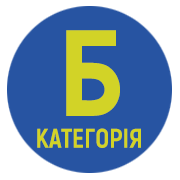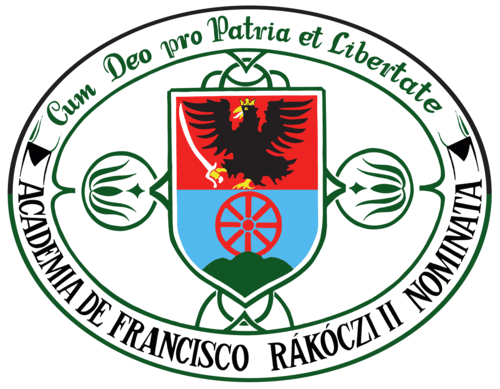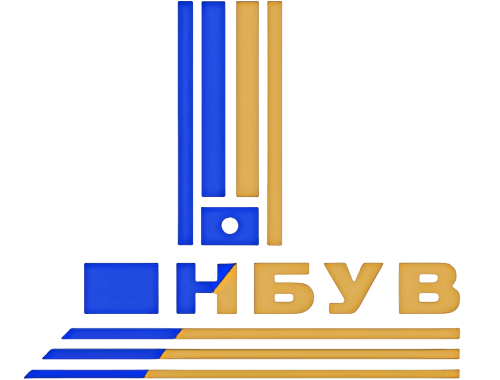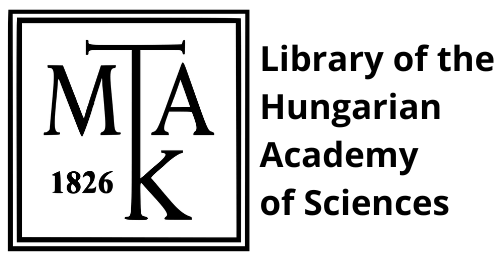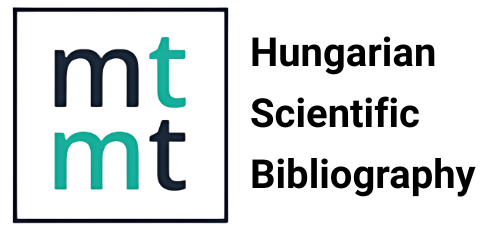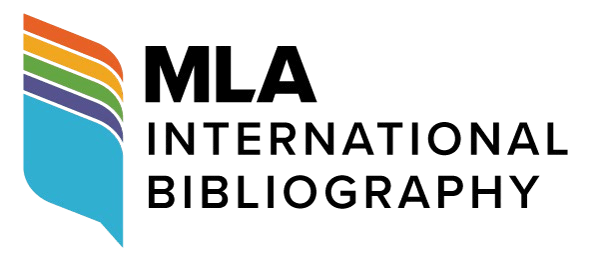„Чому не кажеш угорською?”
Діаспоризація і мовні ідеології
DOI:
https://doi.org/10.58423/2786-6726/2022-1-162-182Ключові слова:
діаспоризація, діаспора, етнографія, ідентичність, Каталонія, критична соціолінгвістика, міграція, мовні ідеологіїАнотація
Дослідження мовних ідеологій налічує вже чотири десятиліття. Проте такі дослідження, які розкривають зв'язок між формами суспільного існування та формами мовлення, тільки нещодавно почали звертати увагу на питання діаспоризації. Здійснене нами соціолінгвістичне дослідження на етнографічному ґрунті об’єднує ці дві дослідницькі теми. Таким чином, у публікації зроблено спробу аналізу того, які мовні ідеології впливають на процеси і практику діаспоризації. Для цього використано результати та досвід нашого докторського дослідження, проведеного в середовищі угорців Каталонії. Соціолінгвістичне вивчення явищ міграції та діаспоризації відстежує динамічні та локальні процеси, через які формується діаспорна ідентичність, яка згодом утверджується і навіть може змінитися в конкретній інтеракції. Тобто ідеології та ідентичності (в тому числі й діаспорну ідентичність) ми розглядаємо з точки зору соціального конструктивізму, тобто замість опису їх характеристик ми звертаємо увагу на те, яким чином вони стають релевантними і помітними в ході певної інтеракції, і яких значень вони набувають у перспективі мовців. У публікації проаналізовано частину спілкування, в якому учасники конструюють різні ідеологічні позиції та ідентичності у питаннях національної приналежності, регіональної приналежності, мов, віку та статі. У цьому спілкуванні два учасники дослідження зустрілися вперше. Такі інтеракції сприяють тому, щоби дослідник міг зорієнтуватися в тому, якими є ті мовні проблеми, що дійсно важливі для мовців, оскільки тут учасники здійснюють різні узгодження для формування й підтримування розмовних ролей. Висновано, що мовців одночасно оточують різні мовні ідеології, які рефлектуються різною мірою, проте лінгвістичний аналіз, чутливий до діяльності суспільства, не може залишити їх поза увагою. А для цього необхідним є створення відповідних баз шляхом польових досліджень.
Посилання
Androutsopoulos, Jannis – Lexander, Kristin Vold 2021. Digital polycentricity and diasporic connectivity: A Norwegian-Senegalese case study. Journal of Sociolinguistics 25/5: pp. 720–736. DOI: https://doi.org/10.1111/josl.12518.
Bartha, Csilla 2005. Constructing different ethnic identities: Symbolic values, linguistic ideologies and language maintenance in a Hungarian American immigrant community (New Brunswick, NJ). In: Cabeza Pereiro, Carman – Lorenzo Suárez, Anxo M. – Rodríguez-Yáñez, Xoán Paulo eds. Bilingual Communities and Individuals: Proceedings from the First International Symposium on Bilingualism. Vigo: Universidade de Vigo. pp. 21–33.
Bodó Csanád 2016. Nyelvi ideológiák és különbségek [Language ideologies and differences]. Kolozsvár: Nemzeti Kisebbségkutató Intézet. (In Hungarian).
Borbély Anna – Bartha Csilla 2021. Interjú, lejegyzés és kódolás a BUSZI-2-ben [Interview, transcription, and coding in BUSZI-2]. In: Kontra Miklós – Borbély Anna szerk. Tanulmányok a budapesti beszédről: A Budapesti Szociolingvisztikai Interjú alapján [Studies on Budapest talk according tot he Budapest Sociolinguistics Interview]. Budapest: Gondolat. 108–142. (In Hungarian)
Borbély Anna – Vančoné Kremmer Ildikó – Hattyár Helga szerk. 2009. Nyelvideológiák, attitűdök és sztereotípiák: 15. Élőnyelvi Konferencia [Language ideologies, attitudes, and stereotypes: 15th Hungarian Sociolinguistics Conference]. Budapest: Tinta Könyvkiadó. (In Hungarian).
Block, David 2008. On the appropriateness of the metaphor of LOSS. In: Rubdy, Rani – Tan, Peter eds. Language as Commodity: Global Structures, Local Marketplaces. London: Continuum. pp. 187– 203.
Blommaert, Jan – Rampton, Ben 2016. Language and Superdiversity. In: Arnaut, Karel – Blommaert, Jan – Rampton, Ben – Spotti, Massimiliano eds. Language and Superdiversity. New York: Routledge. pp. 21–48.
Brubaker, Rogers 2005. The “diaspora” diaspora. Ethnic and Racial Studies 28/1: pp. 1–19. DOI: https://doi.org/10.1080/0141987042000289997.
Bucholtz, Mary – Hall, Kira 2005. Identity and interaction: A sociocultural linguistic approach. Discourse Studies 7/4–5: pp. 585–614. DOI: https://doi.org/10.1177/1461445605054407.
Cameron, Deborah 2003. Gender and Language Ideologies. In: Holmes, Janet – Meyerhoff, Miriam eds. The Handbook of Language and Gender. Oxford: Blackwell. pp. 447–467. DOI: https://doi.org/10.1002/9780470756942.ch19.
Catedral, Lydia 2021. The (im)possibility of sociolinguistic hybridity: Power and scaling in post-soviet, transnational life. Journal of Sociolinguistics 25/3: pp. 324–349. DOI: https://doi.org/10.1111/josl.12461.
Codó, Eva 2018. Lifestyle residents in Barcelona: A biographical perspective on linguistic repertoires, identity narrative and transnational mobility. International Journal of the Sociology of Language 250: pp. 11–34. DOI: https://doi.org/10.1515/ijsl-2017-0053.
Costa, James 2019. Regimes of language and the social, hierarchized organization of languages. Language & Communication 66: pp. 1–5. DOI: https://doi.org/10.1016/j.langcom.2018.10.002.
Csányi, Zoltán 2018. Exploring the behavioural aspects of migration decisions in the biography of a returner. Análise Europeia 3: pp. 58–90.
Fenyvesi, Anna ed. 2005. Language Contact Outside Hungary: Studies on Hungarian as a Minority Language. Amszterdam – Philadelphia: John Benjamins.
Gal, Susan 2002. Language ideologies and linguistic diversity: Where culture meets power. In: Keresztes László – Maticsák Sándor szerk. A magyar nyelv idegenben [The Hungarian Language Abroad]. Debrecen: Debreceni Egyetem. 197–204. o.
Gal, Susan 2016. Sociolinguistic differentiation. In: Coupland, Nikolas ed. Sociolinguistics: Theoretical Debates. Cambridge: Cambridge University Press. pp. 113–136. DOI: https://doi.org/10.1017/CBO9781107449787.006.
Gal, Susan – Irvine, Judith 2019. Signs of Difference: Language and Ideology in Social Life. Cambridge: Cambridge University Press.
Goebel, Zane 2020. Rapport and the discursive co-construction of social relations in fieldwork settings. In: Zane Goebel ed. Rapport and the Discursive Co-Construction of Social Relations in Fieldwork Settings. Berlin: de Gruyter. pp. 1–16.
Hatoss, Anikó 2020. Agency and ideology in language maintenance: Hungarian immigrants’ narratives on assimilationist post-war Australia. International Journal of Multilingualism 17/4: pp. 411–429. DOI: https://doi.org/10.1080/14790718.2018.1504950.
Heller, Monica – Pietikäinen, Sari – Pujolar, Joan 2018. Critical Sociolinguistic Research Methods: Studying Language Issues That Matter. New York – London: Routledge.
Heltai János Imre 2020. Transzlingválás – elmélet és gyakorlat [Translanguaging – theory and practice]. Budapest: Gondolat. (In Hungarian).
Hires-László Kornélia – Karmacsi Zoltán – Márku Anita szerk. 2011. Nyelvi mítoszok, ideológiák, nyelvpolitika és nyelvi emberi jogok Közép-Európában elméletben és gyakorlatban: A 16. Élőnyelvi Konferencia előadásai [Language myths, ideologies, language policy and linguistic human rights in Central Europe in theory and practice: the talks of the 16th Hungarian Sociolinguistics Conference]. Budapest: Tinta Könyvkiadó. (In Hungarian)
Horner, Kristine 2009. Language, citizenship and Europeanization: Unpacking the discourse of integration. In: Hogan-Brun, Gabrielle – Mar-Molinero, Clare – Stevenson, Patrick eds. Discourses on Language and Integration. Amsterdam – Philadelphia: John Benjamins. pp. 109–129.
Irvine, Judith 2022. Revisiting theory and method in language ideology research. Journal of Linguistic Anthropology. Online közzétéve: 2022. január 17. DOI: https://doi.org/10.1111/jola.12335.
Karimzad, Farzad – Catedral, Lydia 2018. Mobile (dis)connection: New technology and rechronotopized images of the homeland. Journal of Linguistic Anthropology 28/3: pp. 293–312. DOI: https://doi.org/10.1111/jola.12198.
Kontra Miklós 2020. Mi hiányzik a magyar szociolingvisztikából? [What is missing from Hungarian Sociolinguistics]. In: Heltai János Imre – Oszkó Beatrix szerk. Nyelvi repertoárok a Kárpát-medencében és azon kívül: Válogatás a 20. Élőnyelvi Konferencia (Budapest, 2018. augusztus 30. – szeptemebr 1.) előadásaiból [Linguistic repertoires in the Carpathian basin and beyond: Selected volume of the 20th Hungarian Sociolinguistic conference (Budapest, 30 August 2018 – 1 September)]. Budapest: Nyelvtudományi Intézet. 20–43. o. (In Hungarian).
Kroskrity, Paul V. 2000. Regimenting languages: language ideological perspectives. In: Kroskrity, Paul V. ed. Regimes of Language: Ideologies, Polities & Identities. Oxford: James Currey. pp. 1–34.
Laihonen, Petteri 2008. Language ideologies in interviews: A conversation analysis approach. Journal of Sociolinguistics 12/5: pp. 668–693. DOI: https://doi.org/10.1111/j.1467-9841.2008.00387.x.
Laihonen, Petteri 2011. A nyelvideológiák elmélete és használhatósága a magyar nyelvvel kapcsolatos kutatásokban [The theory and utility of language ideologies in research in connection with the Hungarian language]. In: Hires-László Kornélia – Karmacsi Zoltán – Márku Anita szerk. Nyelvi mítoszok, ideológiák, nyelvpolitika és nyelvi emberi jogok Közép-Európában elméletben és gyakorlatban: A 16. Élőnyelvi Konferencia előadásai [Language myths, ideologies, language policy and linguistic human rights in Central Europe in theory and practice: the talks of the 16th Hungarian Sociolinguistics Conference]. Budapest: Tinta Könyvkiadó. 20–27. o. (In Hungarian).
Lanstyák István 2017. Nyelvi ideológiák: Általános tudnivalók és fogalomtár [Language ideologies: General information and glossary].
http://dragon.unideb.hu/~tkis/li_nyelvideologiai_fogalomtar2.pdf (Accessed: 10 March 2020). (In Hungarian).
Ludányi András 2015. A szétszórtsági tudat létrejötte magyar Amerikában [The sense of dispersion in Hungarian America]. Korunk [Our age] 26/3: 4–13. o. (In Hungarian).
Márquez Reiter, Rosina – Martín Rojo, Luisa eds. 2015. A Sociolinguistics of Diaspora: Latino Practices, Identities, and Ideologies. New York: Routledge.
Patiño-Santos, Adriana 2018. “No-one told me it would all be in Catalan!”: Narratives and language ideologies in the Latin American community at school. International Journal of the Sociology of Language 250: pp. 59–86. DOI: https://doi.org/10.1515/ijsl-2017-0055.
Paz, Alejandro I. 2015. The deteritorialization of latino educación: Noncitizen latinos in Israel and the everyday diasporic subject. In: Márquez Reiter – Martín Rojo eds. A Sociolinguistics of Diaspora: Latino Practices, Identities, and Ideologies. New York: Routledge. pp. 151–167.
Pujolar, Joan – Gonzàlez, Isaac 2013. Linguistic ’mudes’ and the de-ethnicization of language choice in Catalonia. International Journal of Bilingual Education and Bilingualism 16/2: pp. 138–152. DOI: https://doi.org/10.1080/13670050.2012.720664.
Rosa, Jonathan – Burdick, Christa 2016. Language ideologies. In: García, Ofelia – Flores, Nelson – Spotti, Massimiliano eds. The Oxford Handbook of Language and Society. Oxford: Oxford University Press. pp. 103–123. DOI: https://doi.org/10.1093/oxfordhb/9780190212896.013.15.
Rosa, Jonathan – Trivedi, Sunny 2017. Diaspora and language. In: Canagarajah, Suresh ed. The Routledge Handbook of Migration and Language. London – New York: Routledge. pp. 330–346.
Sabaté i Dalmau, Maria 2018. Exploring the interplay of narrative and ethnography: A critical sociolinguistic approach to migrant stories of dis/emplacement. International Journal of the Sociology of Language 250: pp. 35–58. DOI: https://doi.org/10.1515/ijsl-2017-0054.
Sebők Szilárd 2017. Meta és nyelv: Kísérletek a nyelvleírás nyelvének leírására [Meta and language: Experiments on the description of the language of language description]. Pozsony: Comenius Egyetem. (In Hungarian).
Silverstein, Michael 1979. Language structure and linguistic ideology. In: Clyne, Paul R. – Hanks, William F. – Hofbauer, Carol L. eds. The Elements: A Parasession of Linguistic Units and Levels. Chicago: Chicago Linguistic Society. pp. 193–247.
Szabó Gergely 2015. „Hogy fejezzem ki magam szépen?”: Nyelvi ideológiák az obszce-nitások mögött [‘How to put it nicely?’: Language ideologies behind obscenities]. Magyar Nyelvőr [Hungarian Language Guard] 139/3: 334–347. o. (In Hungarian).
Szabó Tamás Péter 2012. „Kirakunk táblákat, hogy csúnyán beszélni tilos”: A javítás mint gyakorlat és mint téma diákok és tanáraik metanyelvében [‘We put signs on no bad language’: Repair as practice and as a subject in the meta-language of students and their teachers]. Dunaszerdahely: Gramma. (In Hungarian).
Szabó-Törpényi Annamária Ulla 2013. Szociolingvisztikai vizsgálatok franciaországi magyarok körében [‘Sociolinguistic studies among Hungarians in France’]. PhD thesis. Budapest: Eötvös Loránd Tudományegyetem. (In Hungarian).
Theodoropoulou, Irene 2021: Nostalgic diaspora or diasporic nostalgia? Discursive and identity constructions of Greeks in Qatar. Lingua 263. DOI: https://doi.org/10.1016/j.lingua.2019.05.007.
Tsagarousianou, Roza – Retis, Jessica 2019. Diasporas, media, and culture: Exploring dimensions of human mobility and connectivity in the era of global interdependency. In: Retis, Jessica – Tsagarousianou, Roza eds. The Handbook of Diasporas, Media, and Culture. New Jersey: Wiley-Blackwell. pp. 1–20.
Tseng, Amelia – Hinrichs, Lars 2021. Introduction: Mobility, polylingualism, and change: Toward an updated sociolinguistics of diaspora. Journal of Sociolinguistics 25/5: pp. 649–661. DOI: https://doi.org/10.1111/josl.12532.
Werbner, Pnina 2015. The boundaries of diaspora: A critical response to Brubaker. In: Klager, Florian – Stierstorfer, Klaus eds. Diasporic Constructions of Home and Belonging. Berlin: De Gruyter. pp. 35 – 51.
Woolard, Kathryn A. 1989a. Double Talk: Bilingualism and the Politics of Ethnicity in Catalonia. Stanford: Stanford University Press.
Woolard, Kathryn A. 1998. Language ideology as a field of inquiry. In: Schieffelin, Bambi B. – Woolard, Kathryn A. – Kroskrity, Paul V. eds. Language Ideologies. Practice and Theory. New York – Oxford: Oxford University Press. pp. 3–50.
Woolard, Kathryn A. 2016. Singular and Plural: Ideologies of Linguistic Authority in 21st Century Catalonia. Oxford – New York: Oxford University Press.
Woolard, Kathryn A. – Frekko, Susan 2013. Catalan in the twenty-first century: Romantic publics and cosmopolitan communities. International Journal of Bilingual Education and Bilingualism 16/2: pp. 129–137. DOI: https://doi.org/10.1080/13670050.2012.720663.
Downloads
Опубліковано
Як цитувати
Номер
Розділ
Ліцензія
Автори зберігають авторські права та надають журналу право першої публікації. Водночас робота ліцензується за умовами ліцензії Creative Commons Attribution 4.0 International License (CC BY 4.0), що дозволяє іншим поширювати матеріал за умови належного посилання на автор(ів) та первинну публікацію в цьому журналі.

